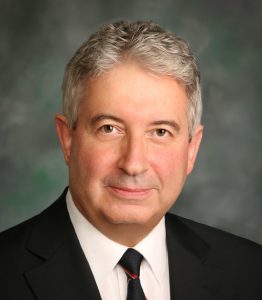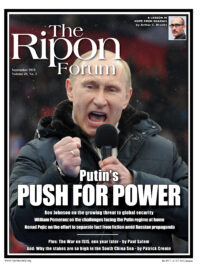
The Naturalization civics test was going well but now there was a definite edge in the examiner’s voice as she lined up her final question:
“What was the significance of the American Declaration of Independence?”
That was easy. “It signified America’s Declaration of Independence,” I replied smugly. But the immigration official was way ahead of me. She fixed me with a cold eye.
“Independence from whom?”
It was a timely lesson: the Federal government always has the last laugh, something you would have thought smartarse Brits had learned in 1776. The British take a perverse pride in their cynicism and I admit I’ve been as susceptible as any.
But I’m fortunate in also being Irish, and thus quite likely to alternate my cynicism with flights of misty idealism, especially when it suits my argument to assume the perspective of a small, proud and feisty republic. So it was no great wrench, in the Citizenship Oath, to “abjure all allegiance and fidelity to any foreign prince,” even if eight years as Princess Diana’s Chief of Staff hadn’t already done the trick.
Instead, I now gladly swear allegiance “to the Constitution and laws of the United States.” In my new homeland, patriotism is an unqualified virtue – sometimes the cheesier, the better. In England, it’s been said that patriotism is the last refuge of the scoundrel. But in America, scoundrels and even politicians can make it their first resort too without a flicker of embarrassment.
This can have unintended consequences. As a teenager, I was backpacking through Greece and, upon reaching Epidaurus, joined assorted international visitors in hushed awe at the splendor of the ancient amphitheater and its whisper-sensitive acoustics. Presently, the stillness was shattered by a coach-load of American tourists, one of whom took center stage and belted out an impassioned rendition of America the Beautiful. Guess what: there were no calls for an encore.
As 9/11 and other atrocities have made horribly obvious, retreating to our own blessed homeland and pulling up the drawbridge is futile.
A few years later, I was digging among the ruins of Petra with some Jordanian archaeologists when into the desert stillness came a deep bass voice. Soon, the singer hove into sight — a large, bearded American astride a very small, unhappy donkey. His blaring song proclaimed his all-merciful Savior would soon rule the world and we should rejoice accordingly. My Muslim companions just smiled and imperceptibly shook their heads. But on behalf of all Christendom, I cringed.
I knew better than to judge America by these two incidents. But such uninhibited attitudes to patriotism and religion and such disregard for other nationalities’ feelings — however unintentional — make it easier to understand how their Exceptionalism and Indispensability are accepted by many Americans as self-evident truths. Nor does it behoove sniffy Europeans to forget that their freedom to sniff was bought with American blood. But where the audience at Epidaurus stifled their irritation, others question American exceptionalism in ways that have brought us, via decades of violence, to the current fraught state of the Middle East. The reality is that for much of the world, America the Indispensable is often seen as America the Indefensible.
What should we Americans do about it? We hear calls to build a wall around our shining city on a hill and demand other, less-shiny cities pay for their own protection instead of sheltering behind ours. Faced with foreign ingratitude, we could devote our energies to the creation of a more perfect nation right here on our own continent. There is a seductive argument for leaving the Middle East and other trouble spots to their own unlovely devices. After all, we have the satellites and drones and Special Forces to keep our enemies impotent or at least at a safe distance.
Yet, as 9/11 and other atrocities have made horribly obvious, retreating to our own blessed homeland and pulling up the drawbridge is futile. Whether it’s Chinese cyberattacks or a jihadist with a dirty bomb, new ways to breach our defenses will eventually be found.
Instead, we face a generational struggle to win an unprecedented battle of ideas. And forget traditional tactics: we can’t win by invading Normandy or dropping smart bombs or even by getting our allies to do the bomb-dropping while we hold their coats. Nor will we achieve lasting victory by forgetting that other nations’ sense of Exceptionalism may be held just as fiercely as our own.
Luckily, we have the necessary weapons to hand – and it’s no coincidence that they are the product of the same untidy and fretful democracy that our enemies through history have mistaken for weakness. Along with our still-untapped natural resources and limitless human potential, we have the intellectual strength to learn from our mistakes and adapt to crush threats still unimagined.
Most of all we have the God-given humility to talk softly even as we keep our big stick close. We have to remember — as our enemies surely will — that one is useless without the other. Just ask Teddy Roosevelt.
Patrick Jephson served as Equerry and the first and only Private Secretary to Princess Diana for eight years.




